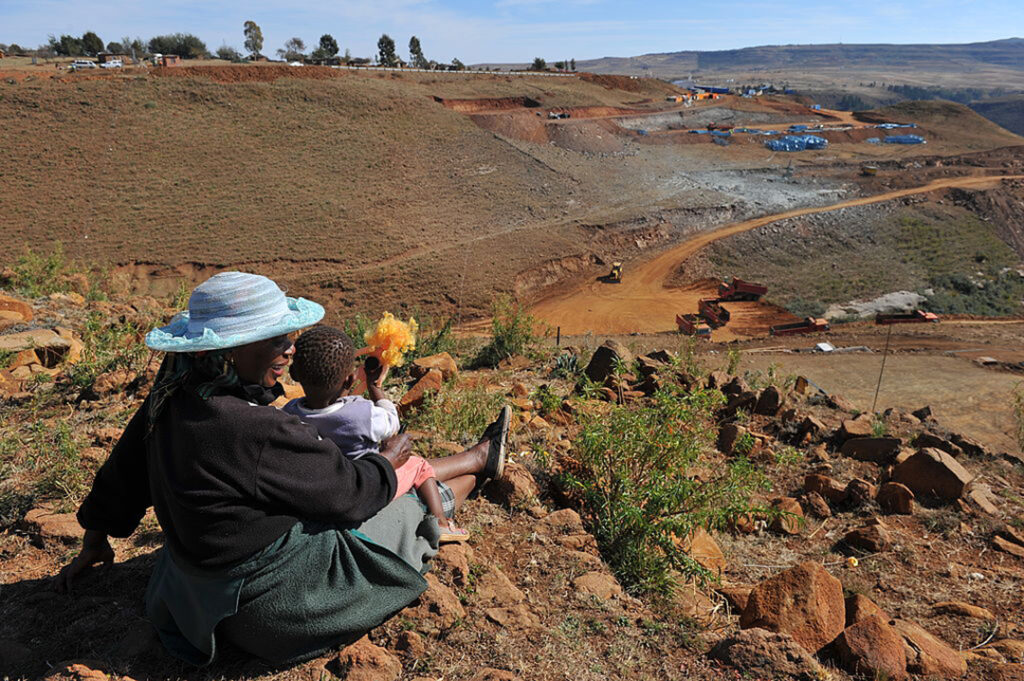ADF STAFF
When Thomas Thabane, then Lesotho’s prime minister, broke ground on a prominent Chinese-funded road construction project in 2018, he declared that his government’s goal was to develop the country and free the Basotho people from poverty.
“It has been a long-held dream to have this route transformed from gravel to a tarred road,” he said.
For some, the project has been nothing short of a nightmare.
A recent investigation by the MNN Centre for Investigative Journalism in Lesotho reported widespread abuse at the multinational Chinese construction company Qingjing (CNQC), which worked in the small, mountainous country landlocked inside of South Africa.
Basotho employees claimed persistent sexual abuse and labor and workplace abuses, such as wrongful death, injuries, a lack of oversight and coordinated coverups.
“Almost all the ladies who dared stand up for their rights have been fired from work, while Qingjing Group hastily ships suspects back to China as part of an elaborate plan to protect the Chinese nationals from possible prosecutions,” MNN reported on February 10.
At a cost of $128 million, which includes a $100 million concessional loan from the Chinese government, CNQC is paving a 91-kilometer stretch of road connecting Qacha’s Nek village to Sehlabathebe National Park, home to the country’s only World Heritage site.
The two-lane road would shorten the driving time between the two towns from 4 to about 1.5 hours and is expected to boost business and tourism. It was slated for completion in 2021 but suffered eight months of delays due to COVID-19, a labor strike, and payment disputes between CNQC and subcontractors.
CNQC, which was appointed to the project by the state-run Export-Import (Exim) Bank of China, claims to have created jobs for more than 500 Basotho. Local women have worked as road flaggers, cleaners and cooks.
Some unmarried women are kept at the project’s Chinese camp against their will, MNN reported.
Lisemelo Moreki, 20, accused a Chinese male supervisor of groping her without permission amid frequent sexual advances and offers. She reported him to a human resources official.
“I lived in fear while I was working with the Chinese,” she told MNN. “Sometimes I sneaked out to sleep in the village for fear of being harassed at night.
“He [the supervisor] fumed with anger when he was confronted by another Chinese [official] about his conduct towards me. In retaliation, he started to punish me. At times I would be instructed to sweep the snowy surrounding when it was snowing and freezing. He ultimately dismissed me, claiming that I defied his instructions.”
A labor board in Qacha’s Nek district is scheduled to hear cases of unfair dismissals by CNQC in February 2023.
Also of great interest to Lesotho’s government are the predatory loan terms that are a hallmark of China’s Belt and Road Initiative projects in Africa.
Lesotho’s media have reported that former Prime Minister Pakalitha Mosisili, who lives in the Qacha’s Nek district, forced the Ministry of Finance to sign the loan contract with China’s Exim Bank.
In the term sheet is a controversial clause that would let China seize Lesotho’s property, including military hardware, if the country fails to pay its debt. Government officials are trying to have the contract declared illegal.
Although the Kingdom of Lesotho has had a trade history with China that dates back as far as 1778, relations today have been fraught with allegations, investigations and court cases.
Mahlomola Manyokole, head of Lesotho’s Directorate of Corruption and Economic Offences, went so far as to accuse Chinese nationals of undue influence over the government after years of evading government probes of corruption, illegal immigration and illegal work permits.
“The sad part about these investigations is that there is a lot of deep-rooted corruption, and these Chinese nationals have captured the government,” he said to the Lesotho Times newspaper in October 2020. “All the governments that have come and gone had in one way or another benefitted from them, and they are doing all they can to stop any investigations.”

